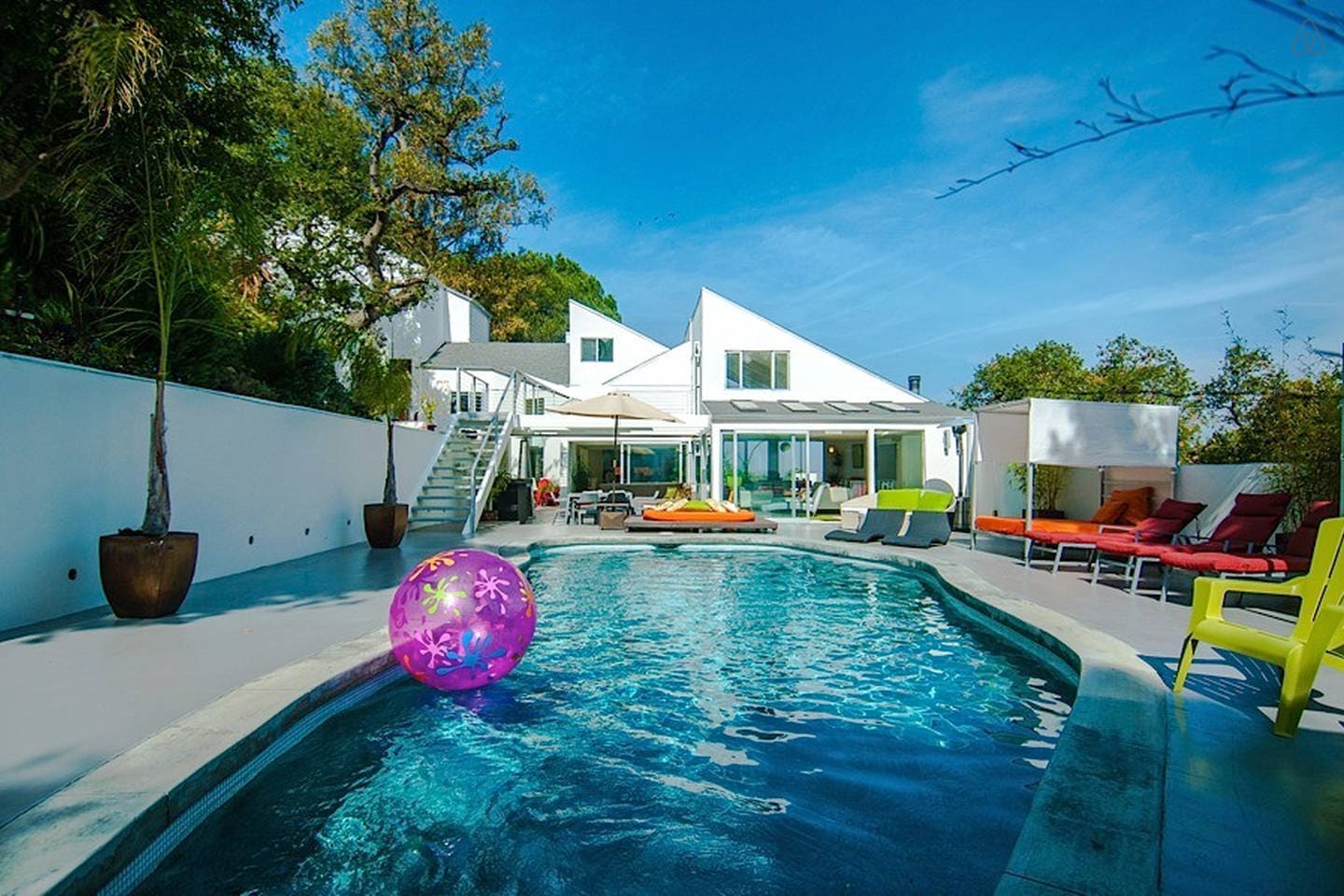Los Angeles Passes Regulation Targeting Airbnb Rental Hosts
An ordinance that would add new regulations for short-term rental housing on Airbnb and other vacation rental websites was approved by the Los Angeles City Council on Tuesday.
The ordinance would limit short-term rentals to people renting out their primary residence for vacation rentals and ban apartment conversions into what some have called “rogue hotels”. The regulations define a primary residence as one where the host lives on site for at least six months.
“We have lost thousands and thousands of units,” City Councilor Paul Koretz said. “We have contributed to homelessness. We have contributed to the price hikes that make the city so unaffordable, and we need to take action today to change that.”
Still, Airbnb criticized the move, insisting that a more comprehensive policy was needed for the city to prevent “bad actors” from bending the rules.
The measure would allow landlords with a good track record as a short-term rental host to apply to exceed a 120-day cap. However, the city could deny the right to rent year round to hosts who have nuisance violations.
The adoption of the ordinance follows three years of regulatory debate involving Airbnb, which in 2016 entered into a three-year agreement with the City of Los Angeles to pay hotel taxes on behalf of hosts. The company’s hosts have been responsible for more than $ 100 million in transitional occupancy tax collections for California’s largest city since August 2016.
“There are certainly studies that have linked rising rents to the size of the short-term rental market,” said Gary Painter, director of the USC Sol Price Center for Social Innovation.
The ordinance, unanimously approved by council, is expected to come into effect on July 1, 2019, although that date may be postponed until later, when the city is expected to pass an ordinance regulating non-primary residences.
“This does not satisfy anyone 100%,” said city councilor Mike Bonin, one of the sponsors of the measure. “But it comes as close as possible to this body after years of working to find a balance between these interests.”
The ordinance requires hosts of short-term rental accommodation to obtain city registration numbers in order to advertise units for rent on Airbnb and other platforms. Units that are licensed for rental and that meet city criteria would be eligible for registration numbers.
Hosts without registration would be considered in violation of the municipal decree. The measure also requires services like Airbnb and HomeAway to keep track of the number of days a host has rented properties and subject vacation rental websites to penalties of $ 1,000 per day for violations. .
“Roommates and vacation rentals play an important role in enabling Angelenos to directly benefit the 48 million visitors who come to Los Angeles each year,” said Mattie Zazueta, spokesperson for San Francisco-based Airbnb. “The city needs a comprehensive short-term rental policy that regulates all short-term rental activities, including its long-term vacation rental market. “
Zazueta added that without such a policy, the City of Los Angeles “will create a loophole that will allow bad actors to jump from platform to platform in an attempt to evade the rules. We believe we can work with the city to enact the rules. that preserve the economic benefits of short-term rentals for residents, while minimizing concerns about housing affordability. ”
A recent report on vacation rentals and Airbnb shows that there were 1.5 million homes in Los Angeles in 2017 and almost 13,600 of them listed as vacation rentals. This represents about 0.9 percent of the city’s total housing stock.
Airbnb, meanwhile, had listings last year for nearly 0.3% of the city’s housing stock, or less than 3,000 full-time rentals.
The ordinance allows accessory housing units, or grandmother’s apartments, authorized before January 1 of last year or later, to be exempt. City officials estimated that there had been thousands of accessory housing units built since then due to the relaxation of state rules that allow more back-home units. court to reduce the housing shortage in the state.
At the same time, it bans the short-term rental of units that fall under the city’s Rent Stabilization Ordinance. According to the city’s housing and community investment department, approximately 631,000 units in 118,000 properties in the city fall under this ordinance, including apartments and condominiums.
Bonin, the city councilor, said the ordinance will likely need to be revised after six months or a year to determine “where it’s working and where it’s weak.” Indeed, one of the changes could be to allow some low-income residents of rent-stabilized housing to become hosts for short-term rentals.
According to Bonin, council could eventually “modify and revise it to suit the reality on the ground to ensure that what we are adopting today does its intended job of protecting rental housing and preserving our neighborhoods.” “. He also said it was important to allow “people who are really trying to use their personal property, their primary residence, to make ends meet.”
It remains to be seen how well the city will be able to enforce short-term rental regulations.
“The key to this has been the applicability,” Bonin conceded. “The city, I’m the first to admit, doesn’t have a great track record in enforcing much of the legislation we approve.”
LOOK: Timeshares may seem idyllic, but the fact remains – millions of homeowners want to get out


Comments are closed.